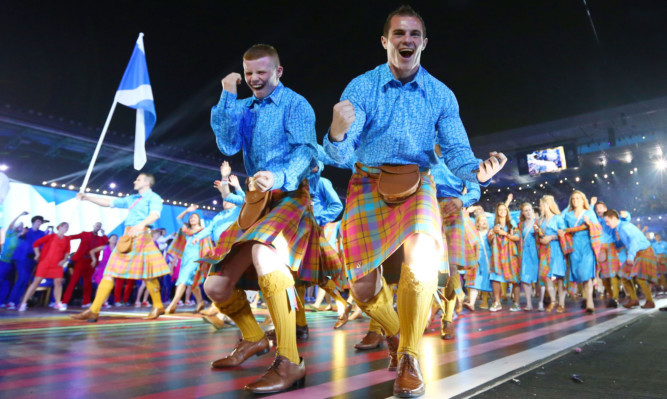The Glasgow Commonwealth Games came in £32 million under budget, with the success of ticket sales and sponsorship reducing the need for public funding, a report has found.
Research for the Auditor General and Accounts Commission said the event last summer benefited from good financial control, strong leadership and effective partnership working, but warned about the future of Games’ legacy projects.
Total public-sector spending on the Games was £424.5 million, £37.2 million (8%) less than expected, it found.
The use of income from other sources such as ticket sales and sponsorship brought the total cost to £543 million, about £32 million (6%) less than the revised £575 million budget agreed in November 2013.
The report said: “With ongoing pressures in public-sector budgets it will be challenging for the Scottish Government and Glasgow City Council to ensure legacy benefits are achieved.
“Evidence from the Manchester 2002 Commonwealth Games legacy evaluation showed that once the Games had finished the legacy programme began having difficulties.
“Strong leadership is therefore crucial to ensure Glasgow 2014 does not have these difficulties.”
Auditor general Caroline Gardner said there had been a “good start” on work to ensure a legacy from the Games but said it was important for the Scottish Government and Glasgow City Council to ensure the planned legacy benefits are delivered.
She said: “They need to continue to evaluate the impact to ensure the Games achieve their longer-term aims such as a healthier population and better life chances for people living in the east end of Glasgow.”
Responding to the report, councillor Archie Graham, depute leader of the Glasgow City Council, said: “We always said that the Games were much more than 11 days of sporting competition and with a framework in place to ensure that we monitor and evaluate legacy projects and benefits at least until 2019, we will continue to keep the momentum going for years to come.”
Paul Martin MSP, convener of Holyrood’s Public Audit Committee, said the report was “reassuring”, adding: “The committee, however, will want to explore with the auditor general if the legacy plans of the Games are likely to make a lasting difference to the people of Scotland.”
Accounts Commission chair Douglas Sinclair said: “The Games have been widely seen as a success and our report adds to this positive picture.
“Strong controls and good planning resulted in a £37.2 million underspend of public money, money which will now be returned to the public sector.”
The Games budget included a contingency fund of £70 million, divided into an operational contingency of £46 million and a special reserve of £24 million funded solely by the Government.
No cash was needed from the special reserve but around three-quarters (£34 million) of the operational contingency was used to cover such things as enhancements to the opening and closing ceremonies, increases in transport costs and improvements to the Athletes Village.
Safety and security cost £88.3 million, slightly lower than the £90 million budget, with no major security issues and crime in the greater Glasgow area dropping 18% during the quarter in which the Games were held.
Almost a quarter (23%) of the security spend went towards hiring staff from private-sector security firms while £16.8 million (19%) was spent on overtime costs.
The Games budget rose from £524 million in 2009 to £575 million in 2013 mainly due to an increase in the security budget from £27 million to £90 million and also as a reflection of increased income from initial ticket sales.
Liz Smith MSP, Conservative spokeswoman for sport, said the report had raised questions about the size of the increase in spending for policing and security.
She said: “Audit Scotland make the point that in some areas of resources management, leadership was not as good as it might have been and that this was part of the reason for problems within the security budget.
“There may be other high-profile events in the future, it’s therefore very important that lessons are learnt when it comes to policing and security.”
